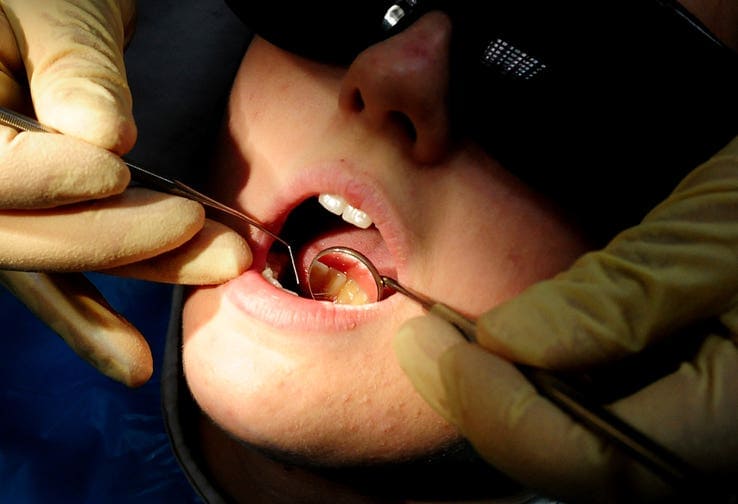
Children in Allerdale had thousands fewer dental treatments last year, figures reveal.
The British Dental Association has warned it could take years to repair damage the COVID-19 crisis has caused to the dental health of young people across the country.
Patients aged under 18 in Allerdale were given 9,042 courses of treatment in 2020, figures obtained from the NHS Business Services Authority through a freedom of information request show.
This was 56 per cent fewer than the 20,592 recorded the previous year.
The steepest decline was seen for band 2 treatments, which include fillings, root canal work or the removal of teeth.
Children were given 1,619 courses of this treatment type last year – a drop of 58 per cent from 2019.
The number of the most routine band 1 courses of treatment, which include examinations and diagnosis, fell by 58 per cent to 6,753.
Urgent procedures also fell by 23 per cent to 604.
These can be carried out when a child has a swelling caused by an infection, severe toothache or facial pain that cannot be controlled by taking painkillers.
Across England, children had 4.7 million courses of treatment last year, down from 11.6 million in 2019 – a drop of 59 per cent.
Eddie Crouch, chairman of the British Dental Association, said: “It may take years to undo the damage this pandemic has had on the oral health of our children.
“The kids facing the biggest challenges will be from our most deprived communities, and we now need all hands to the pumps to help them.
“Tooth decay was already the number one reason for child hospital admissions. Now access to services has halved, and inequalities we’ve long grappled with look set to widen.”
The BDA recently criticised moves to impose targets on dental practices, saying they risk “devastating NHS dental services”.
Under the plans, it says those falling below 45 per cent of their pre-pandemic activity between January 1 and the end of March could face steep financial penalties by having to hand back a proportion of their NHS funding.
Mr Crouch added: “Sadly, ministers have chosen to focus on volume over need. They need to find a way forward that delivers for the kids that need us most, with tangible support for services, wedded to real commitment to prevention.”
A Department for Health and Social Care spokesman said: “Children’s oral health in England is among the best in the world and we have taken every step through this pandemic to ensure children, and adults, are able to continue to access the highest-quality of dental care.
“Since June last year, all practices have been able to open and deliver in-person care, with over 600 urgent dental centres continuing to provide more support to the dental sector.”








